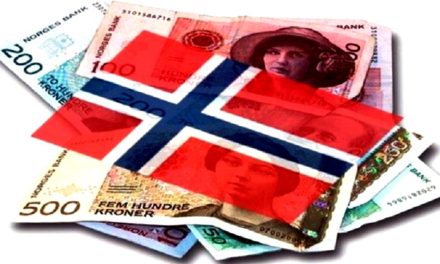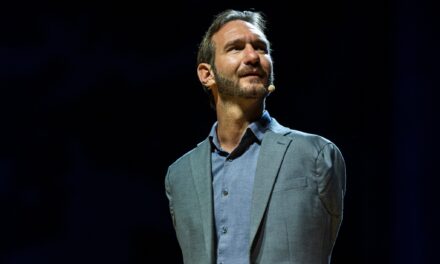I have been far away, in remote regions, between wild and calm, so I just read the interview that 24.hu made with Ádám Nádasdy.
These interviews are important because they bring you closer to the epicenter of the decay of the age, whose name is neoliberalism - and everything that goes with it.
We learn that Ádám Nádasdy "now lives in London with her husband", and that's so good. It's so comforting. The reassuring thing about it is that, according to the intention of the interviewer and the speaker, this is just said and described, indicating that it is self-explanatory and natural. But every normal person gets upset and stumbles over this, the fact and the use of words. Then, after the collision and interruption, he involuntarily thinks about the whole thing for a moment, and since he came from a normal family, he has an image of his mother and father, which is why he inevitably imagines uncle Ádám as his wife, and this is both infinitely grotesque and ridiculous, as well as slightly disgusting. That's natural.
Just how much it is, was proven by the 444.hu portal many years ago, when they published a material in which homosexual men and girls appeared. The point was that sandy men had to touch a female breast, and lesbian women a male member. And meanwhile they felt invincible disgust and disgust.
According to the intention of the material, it proved that what is self-evident and exciting to heterosexuals is disgusting to homosexuals. But the material - obviously unintentionally - proved the opposite of everything, that normal heterosexuals find it just as disgusting and disgusting to imagine what the sands do to each other. And it follows directly from all of this: no one should be ashamed of being homophobic, because that is normal. And of course, homophobia does not mean the exclusion, stigmatization, or discrimination of homosexuals in other areas of life, it just means that a heterosexual is disgusted by the imagined or seen sexual manifestations of homosexuality, which is why it is completely counterproductive to push them into the image of society, the majority society any other way to constantly provoke, while demanding respect and acceptance.
Yes: no one has anything to do with what he does back home with the chosen one of his heart or penis, and yes, he does what he wants. That's all there is to freedom, provided of course that it's about adults and free will. But to carve a life program, respect and a pedestal out of it is barbarism, ugliness, crime. And beyond disgusting. Yes: the mother (wife) is a woman, the father (husband) is a man, and our children are left alone.
That's all about Ádám Nádasdy as "wife", and then let's see the more important parts of the interview.
We learn that Ádám Nádasdy is very productive and works a lot. It's not just that, he rewrites classics into "modern language", because the classics are no longer comprehensible or acceptable to today's people, especially the young, so Nádasdy builds a "rain roof" over them and thus extends their lifespan by roughly thirty years. But let's listen to him himself:
"Recently, I was in Csíksereda at a conference on translation and cultural transmission at the university there. I gave a lecture on Bánk bán, of which I also made a parallel edition with modern prose. I was just talking about the statements and curses of Petur bán and the other soldiers. What should we do with "devil and hell" in today's language? Today it's more comical, it has no power. Should I write that »brought into existence«?
An elderly gentleman spoke up and said that he was upset that I was talking about this wonderful gem of Hungarian literature in such a style. You could see that he was really excited by the topic. I said, "Sir, it's not in the right place." It is as if he had entered the church with a devout heart, only now there is a prayer going on. And you see me directing the workers where to put that Virgin Mary, and here, behind the Christ, there should be an outlet. If we don't do this work, the church doesn't work. But this is really not the moment when we kneel down to pray.« I learned from my parents that works of art can be handled in this way.»
"[…] The Bánk translation of Bánk has been discussed, and the Tragedy of Man translation will be published soon. Do you have a list of classic Hungarian literary works that you still need to make accessible in this way?
Rather, I only had a list with the three classic plays: Bánk bán, Csongor and Tünde, The Tragedy of Man. The last two are only formally plays, rather they are poems. I'm basically a drama translator, that's how I approach them. I wanted to bring these three old men closer to Hungarian youth. A Hungarian teacher friend of mine told me about Csongor és Tünde that it could slowly be included in the literary museum. My translation, on the other hand, works as if I had made a rain roof for a beautiful, old, dilapidated building. I have extended his life span, he can keep himself like this for another thirty years. The tragedy of man is different, because it is about religion, philosophy, eternal themes, which my prose translation pushes more aggressively into the reader's image. Why does the Lord God say that he created the world and is now going to rest? Don't rest, I'm sorry, deal with us! […]
This year we are commemorating the two hundredth anniversary of Sándor Petőfi's birth. Do you think it is less in need of explanation and translation today than Bánk bán and The Tragedy of Man?
Petőfi is more understandable. He was a contemporary of Madách (they were almost the same age), but the thought content of The Tragedy of Man makes it difficult to read. Madách was a philosopher and wanted to discuss important scientific questions. Eva says in paradise that if the Lord created them, he will surely make sure that they are not attracted to sin. Why put us on the edge of the abyss, risking falling into it? It's a very important question, and it's not easy to answer. Petőfi does not write about such things.
Is Madách's translation necessary because his use of language obscures philosophical problems from us?
Exactly right. Its language is difficult, it is written throughout in verse, like Goethe's Faust and Byron's Don Juan. Sometimes he squeezes the Hungarian sentence structure to make the poem come out. It is not always clear what he writes. I also had to ask literature teachers for advice and read foreign language translations, because it is always instructive how the translator understands the original. In the Roman setting, a corrupt, decadent figure asks, when he sobers up - it is Ádám who plays this role - if there is a greater lust than "the slow flow of the heart's blood".
Looking closer at this, I don't know what it means. It can be translated word for word, but why would the flow of the heart's blood be lustful? There were those who thought that this actually means that you need to slow down, you don't need a fast-paced life. Early Christianity teaches that it is possible to be poor, to live as a hermit. In other words, "flowing" is not like when the water flows out of the bucket, rather it reminds me of when I sit on the shore and watch the water flow away. So we can talk about the slow circulation and rhythm of the "blood of the heart". I present this version to the audience, I hope that a discussion will arise about it."
I think we understand.
And I also believe, quite desperately, that we are now standing at the epicenter of the decay of the age, where Ádám Nádasdy guides us as a wife, as a discordant Virgil. And I also think that Nádasdy is not right about Petőfi, for example.
Why would Petőfi be more understandable if he writes something like this:
“Dishonest creature! disgraceful couple! / Do you dare to do such a thing to the world? / You steal the sun and blaspheme... / Let the man look... to take away immediately -"
Right, how much a young person today can't do with this language, how incomprehensible it is, for example, "disgraceful steam", what is steam, the wretch can only imagine such things through the glass window, so it's time to rewrite János the valiant for him. For example like this:
Banya says, Ilus cu...rva, uncle Ádám transcribes it like this...
How much more understandable! In addition, we save today's young people from the rhythm of the twelve-and-a-half-year-olds. Or here's this:
"Take the ray of my light to your small eyes, / Come out of the water, let me embrace you; / Come ashore just for a moment, / I will kiss my soul on your red lips!”
What kind of bullshit is this? Why burden the already very overburdened youth with something like that? How much more understandable it would be like this:
Come on, Ilus, I'll grind you down, and then maybe I'll stab you...
And of course there is also Arany, with his equally incomprehensible language:
The heat of the sun burns the sprouts of the barren plain, / Tikkad flocks of grasshoppers graze on it; / There is not an orphaned blade of grass growing between the torso, / There is not a palm-sized green space in a large border field. (…)
"Scratch of barren plains"? What is that? It should be like this:
It's already fucking hot, the capital has dried up, even the grasshoppers have full capital...
Here is the rain roof that extends Toldi by thirty years.
And so on, ad infinitum. Because there's the Divine Comedy, there's Hamlet - eh, why should I list them, how much work Nádasdy still has to do.
And then at the end, let us remember: Babits buried culture because it was suggested that the compulsory teaching of the ancient Greek language would be abolished in high schools. Byung-Chul Han, a German philosopher of Korean origin, writes in his book Psychopolitics – neoliberalism and new techniques of power:
"Keep me from what I want," Han quotes Jenny Holzer at the beginning of her book, and indeed: Every sick, perverted wretch should be kept from what he wants. But this is impossible today, because modern psychopolitics invented the PC, the woke, the cancel culture, this dictatorship of nothingness, emptiness, which pretends to be all-powerful. This is the true disciplining power that never disciplines but promises total freedom and all positivity. But - continues Han - "the human personality cannot be completely subjected to the dictates of positivity. Without negativity, life shrinks into "disappeared existence". It is negativity that keeps life alive. Pain is an essential component of experience. A life that consists of purely positive emotions and flow experiences is not a human life. The human soul owes its depth precisely to negativity: »The tension of the soul in misfortune, which incites its forces [...] its ingenuity and courage in carrying misfortune, not ignoring it, expanding it, interpreting it, making use of it, and everything that only in depth, in secret, in a mask, in spirit , he received it as a gift in cunning and greatness: did he not receive it as a gift from suffering, from the upbringing of great suffering? […] However, the violence of positivity is just as destructive as that of negativity. With its consciousness industry, neoliberal psychopolitics destroys the human soul, which is anything but a positive machine. […] The mode of action of electroshock is fundamentally different from neoliberal psychopolitics. It owes its effect to the paralysis and destruction of psychic contents. Neoliberal psychopolitics, on the other hand, is dominated by positivity. Instead of negative threats, he works with positive incentives. He doesn't use bitter medicine, but likes.«
We live in a specific historical period, in which freedom itself creates constraints. The freedom of what is possible directly creates more constraints than what discipline, commands and prohibitions say. There is a limit to what should be. They can be, but there isn't. Consequently, the constraint that comes from the possible is limitless. thus we find ourselves in a paradoxical situation. Freedom is actually the opposite of coercion. To be free is to be free from constraints. Now this freedom, which should be the opposite of constraints, itself creates constraints. Mental illnesses such as depression or burnout are expressions of a deep crisis of freedom. They are pathological symptoms of the fact that today freedom often turns into coercion."
Yes. And psychopolitics achieves its multiple constraints, which it sees as realized and infinite freedom, by bringing the adult and the entire society back to childhood. This is why all identity must be taken away from man (neoliberalism), why man and animal must be brought to the same level (greens), and why we must be "gifted" with a vocabulary of two hundred words (Nádasdy).
"The smartphone is a digital object, even a digital object. As a subjectivation apparatus, it works like a rosary […]. A like is a digital amen. When we click like, we submit to the dominance context.
The smartphone is not only an effective surveillance tool, but also a mobile confessional. Facebook is the temple, the digital global synagogue."
Exactly. Han is right. And Nádasdy will get a lot of likes. Especially when he also rewrites Sophocles:
"There are many things that are wonderful, but there is nothing more wonderful than man."
Bullshit. It's better like this: The man f...a, let's go home. Although something has to be done with this homecoming. Odysseus wanted to return home at all costs. What antique nonsense. Modern man has no country and believes in nothing. That's why it's at home everywhere. In nothing. Where Nádasdy transcripts can be read. For another thirty years or so. Then it will be outdated too…













